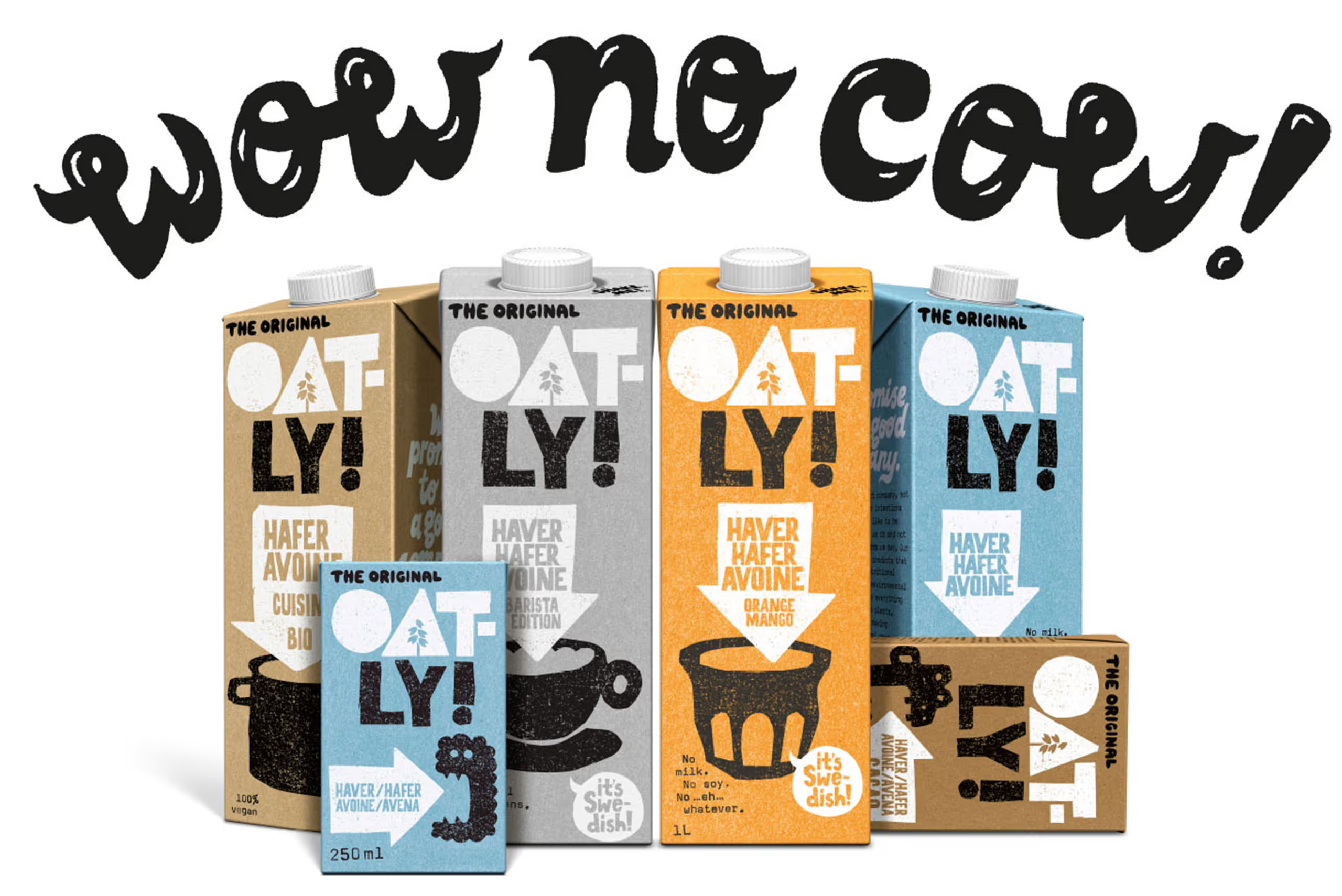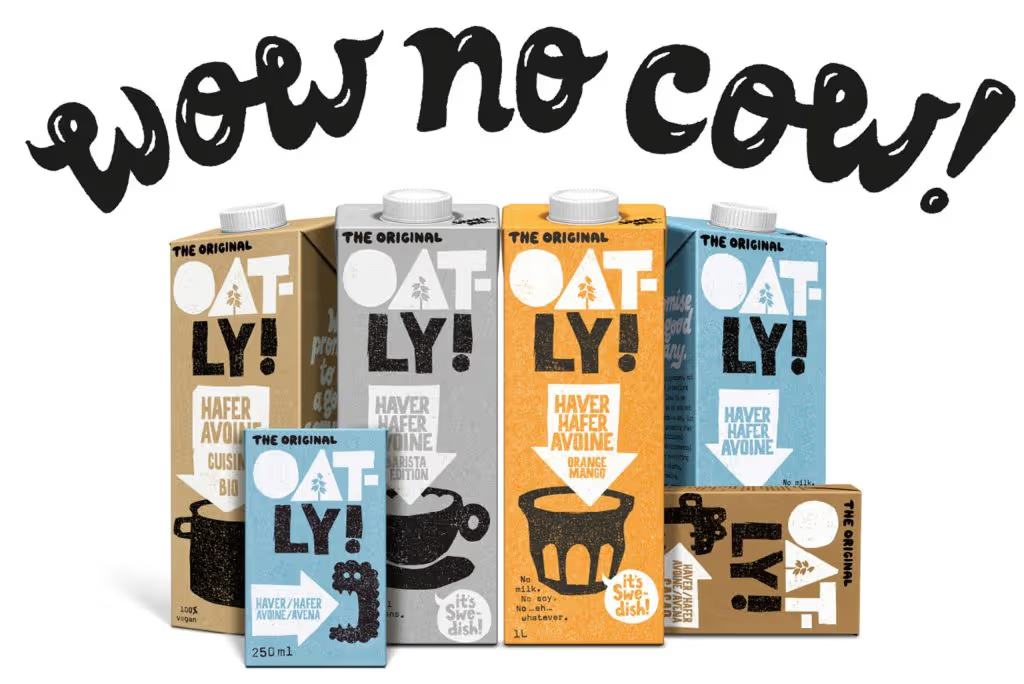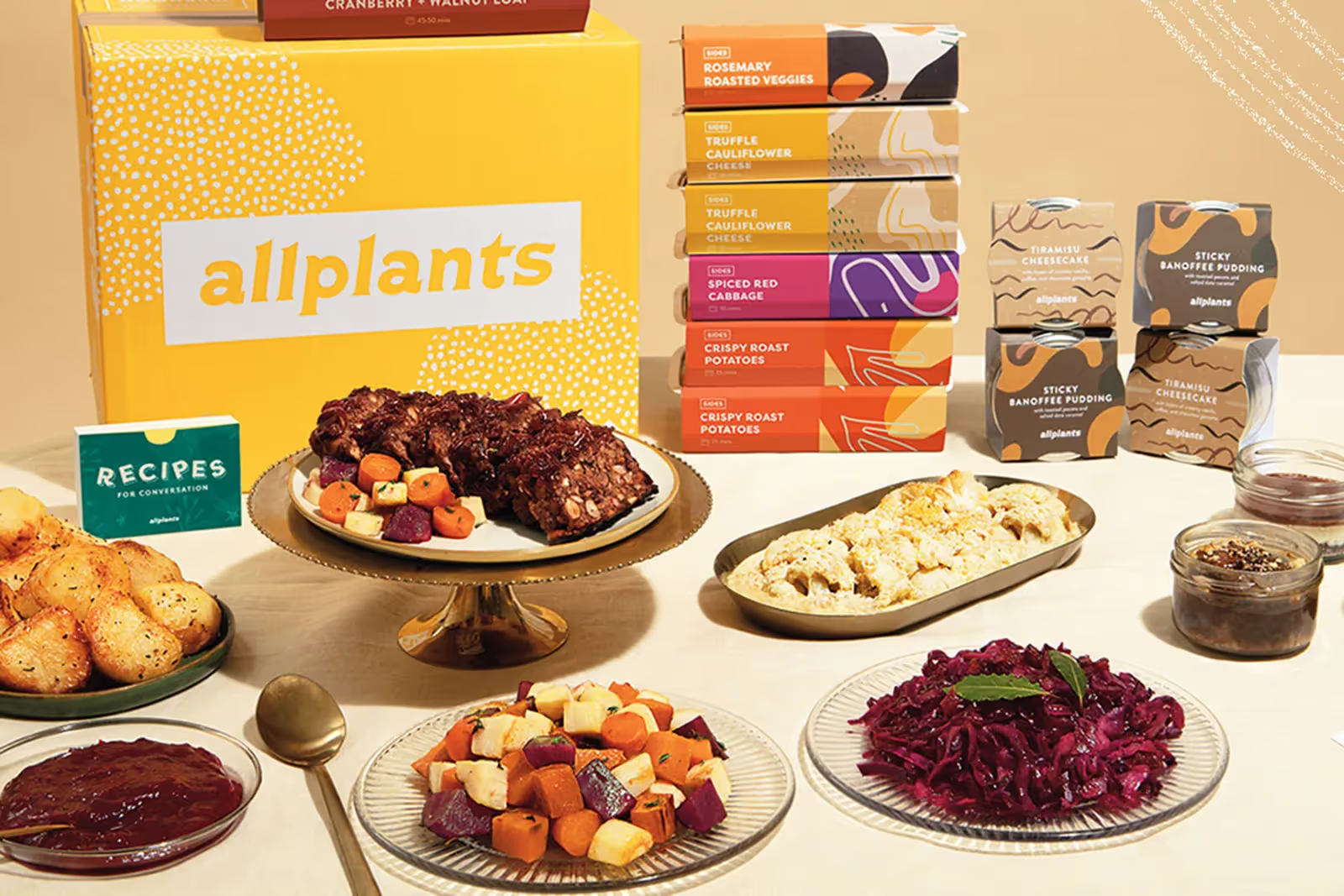How A Campaign Change the Perception of Plant-Based Milk Oatly

In recent years, there has been a significant shift in consumer preferences towards plant-based alternatives, and one brand that has capitalised on this trend with incredible success is Oatly. With their innovative marketing campaign, Oatly has managed to not only transform the perception of plant-based milk but also capture the hearts and minds of consumers around the world. Through a combination of witty advertisements, engaging social media content, and clever branding, Oatly has created a unique and compelling narrative that has resonated with a wide range of consumers.
By focusing on the sustainable and ethical aspects of their product, Oatly has managed to position themselves as more than just another milk alternative - they have become a symbol of a larger movement towards a more conscious and compassionate way of living. In this article, we will explore the Oatly effect, examining how their creative marketing campaign has revolutionised the plant-based milk industry and forever changed the way we perceive non-dairy alternatives.
The rise of plant-based milk
Plant-based milk has experienced a remarkable rise in popularity in recent years. As consumers become more conscious of their health and the environmental impact of their dietary choices, many are turning to non-dairy alternatives. This shift can be attributed to a variety of factors, including concerns about animal welfare, lactose intolerance, and the desire to reduce one's carbon footprint.
The plant-based milk market has expanded to include a wide range of options, including soy, almond, coconut, and oat milk. Among these alternatives, oat milk has emerged as a particularly popular choice due to its creamy texture and neutral taste that closely resembles traditional cow's milk.

The challenges faced by plant-based milk brands
While the demand for plant-based milk has increased, brands in this industry face several challenges when it comes to marketing their products. One of the main obstacles is the perception of non-dairy alternatives as inferior or less nutritious compared to cow's milk. Many consumers still hold the belief that cow's milk is the superior choice when it comes to taste and nutritional value.
Additionally, plant-based milk brands often struggle to stand out in a crowded market. With numerous options available, it can be difficult for a brand to differentiate itself and capture the attention of consumers. This is where Oatly's marketing campaign truly shines, as it managed to break through the noise and create a unique identity for their product.
The Oatly marketing campaign - a brief overview
The Oatly marketing campaign is characterised by its clever and irreverent approach. Rather than relying on traditional advertising methods, Oatly took a bold and unconventional approach that resonated with consumers. Their marketing materials are filled with witty and humorous messages that challenge conventional dairy industry norms and invite consumers to question their choices.
One of the most iconic aspects of the Oatly campaign is their use of quirky and eye-catching advertisements. Oatly strategically placed billboards and posters in major cities around the world, featuring bold statements such as "It's like milk, but made for humans" and "Wow, no cow!" These advertisements not only grab attention but also convey Oatly's message of sustainability and ethical consumption.

The key components of the Oatly marketing campaign
The success of the Oatly marketing campaign can be attributed to several key components that work together to create a cohesive and impactful message. Firstly, Oatly focused on transparency and authenticity. They openly shared their production process and highlighted the sustainable practices they implemented, such as using renewable energy and minimising water usage.
Secondly, Oatly leveraged social media platforms to engage with their target audience. Their social media content is witty, relatable, and often humorous, creating a sense of community among their followers. By sharing behind-the-scenes content, recipes, and even responding to customer comments in a playful manner, Oatly has managed to build a loyal and enthusiastic online community.
Lastly, Oatly's branding played a crucial role in the success of their marketing campaign. They adopted a clean and minimalist design aesthetic that distinguishes their products from traditional milk brands. The use of bold typography and vibrant colours creates a visually appealing and modern brand identity that resonates with their target audience.
The impact of the Oatly marketing campaign on consumer perception
The Oatly marketing campaign has had a profound impact on the way consumers perceive plant-based milk. By challenging the status quo and presenting their product as a viable and even superior alternative to cow's milk, Oatly has successfully shifted consumer perceptions.
Through their messaging, Oatly has managed to reframe the conversation around plant-based milk, positioning it as a choice that aligns with ethical and sustainable values. This has resonated with a growing segment of consumers who are increasingly concerned about the environmental impact of their food choices.
Furthermore, the clever and irreverent nature of the Oatly campaign has generated significant buzz and word-of-mouth marketing. Consumers are not only purchasing Oatly products but also sharing their positive experiences with others, further solidifying Oatly's position as a leader in the plant-based milk industry.

Lessons learned from the Oatly marketing campaign
The success of the Oatly marketing campaign offers valuable lessons for brands in the food industry. Firstly, authenticity and transparency are key. Consumers appreciate brands that are open about their practices and values. By sharing their story and production process, Oatly has built trust and loyalty among their customers.
Secondly, humour and creativity can be powerful tools in capturing consumer attention. Oatly's witty and irreverent messaging set them apart from their competitors and made their brand memorable. Brands should not be afraid to take risks and think outside the box when it comes to their marketing strategies.
Lastly, social media has become an essential platform for engaging with customers and building a community. Oatly's success on social media demonstrates the power of creating meaningful connections with consumers and fostering a sense of belonging.
The long-term effects of the Oatly marketing campaign on the plant-based milk industry
The impact of the Oatly marketing campaign extends beyond the brand itself. By challenging long-held beliefs about milk and presenting plant-based alternatives as a viable option, Oatly has contributed to the overall growth of the plant-based milk industry.
Other brands in the industry have taken note of Oatly's success and have started to adopt similar marketing strategies. This has created a ripple effect, with more brands focusing on sustainability, transparency, and engaging storytelling to connect with consumers. As a result, the plant-based milk industry has become more competitive and innovative, benefiting consumers with a wider range of options.
Conclusion
The Oatly marketing campaign has had a transformative effect on the perception of plant-based milk. Through their creative and irreverent approach, Oatly has successfully positioned themselves as a leader in the industry and captured the hearts of consumers around the world.
By focusing on sustainability, transparency, and engaging storytelling, Oatly has revolutionised the plant-based milk industry and forever changed the way we perceive non-dairy alternatives.
As other brands take note of Oatly's success and adopt similar strategies, the plant-based milk industry is poised for continued growth and innovation.

.avif)



